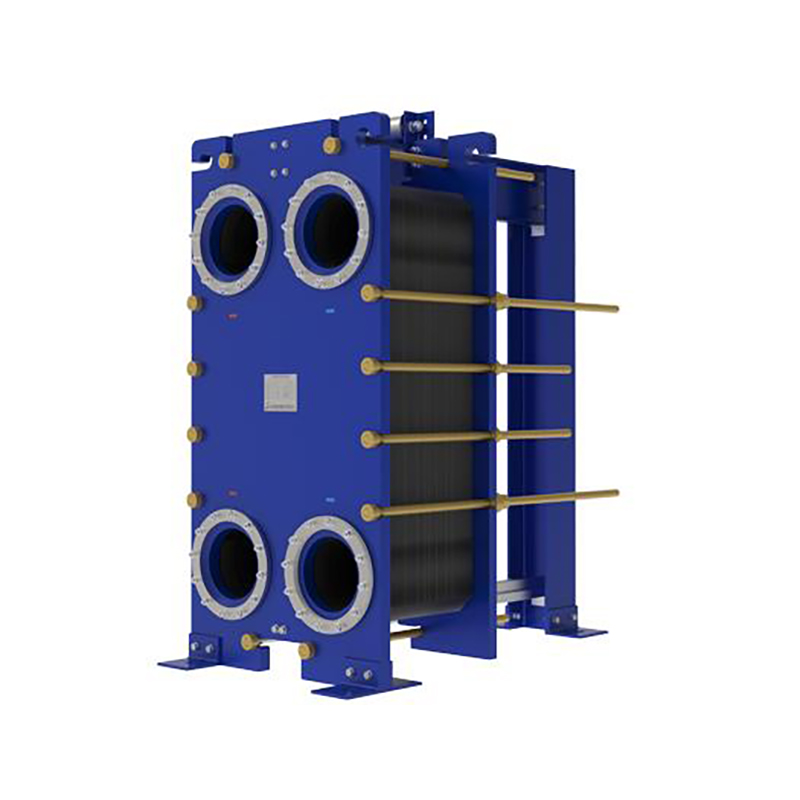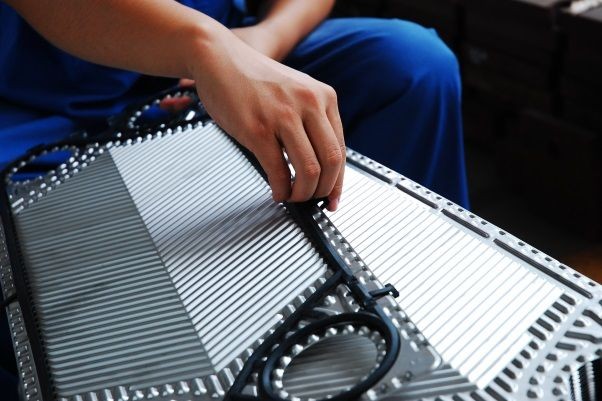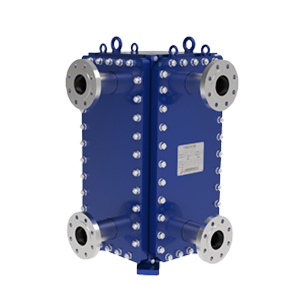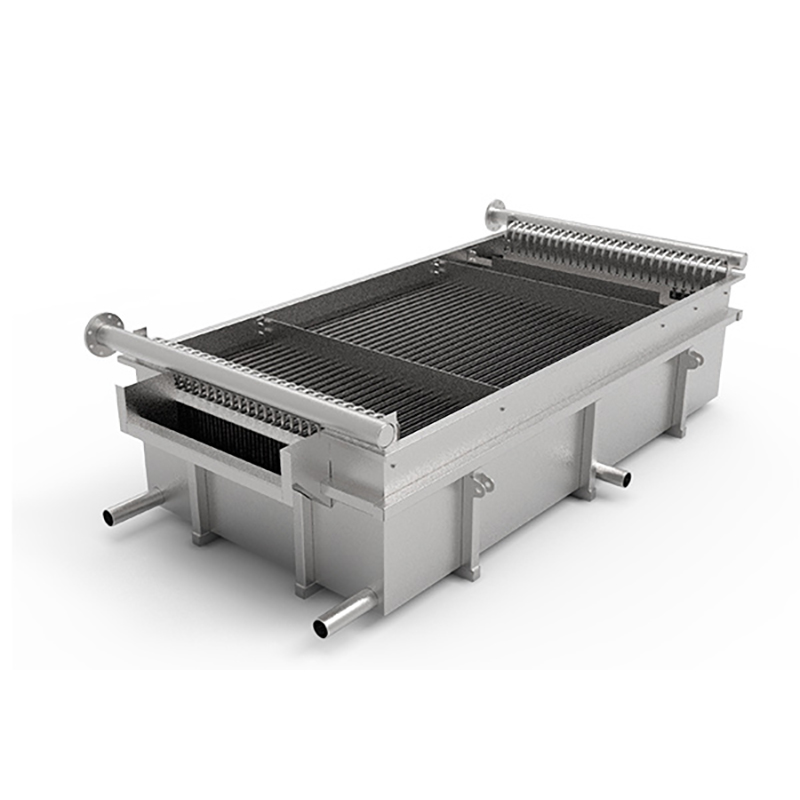5 key roles of plate heat exchanger gaskets.
Plate heat exchanger gaskets perform 5 key roles: ...
More
A Steam Plate Heat Exchanger (PHE) is a compact, highly efficient device designed specifically for transferring thermal energy from steam to a secondary liquid process fluid. Unlike traditional shell and tube heat exchangers, they utilize a series of corrugated metal plates stacked together, creating a large surface area within a small footprint. This design is engineered for superior heat transfer coefficients, making them ideal for applications requiring precise temperature control, rapid heating, and energy recovery. Common industrial uses include pasteurization in food and beverage production, sterilization in pharmaceuticals, hot water heating for district systems, and various process heating duties in chemical plants. Their modular construction allows for easy capacity expansion or reduction by simply adding or removing plates, offering unparalleled flexibility to meet changing process demands. The primary materials of construction, such as 316 stainless steel plates and nitrile or EPDM gaskets, are selected for their durability and compatibility with both steam and a wide range of other media.
The operational superiority of a Steam Plate Heat Exchanger stems directly from its innovative plate-and-frame design. Each thin, pressed metal plate features a complex pattern of corrugations, which serve multiple critical functions. Firstly, these corrugations induce extreme turbulence in both the steam and liquid streams, even at lower flow rates. This turbulence is crucial as it disrupts the stagnant boundary layer of fluid that clings to heat transfer surfaces, which is the main barrier to efficient thermal exchange. By minimizing this layer, the PHE achieves heat transfer coefficients that are typically three to five times higher than those possible with a conventional shell and tube exchanger of a comparable size. Secondly, the corrugations significantly increase the mechanical strength of the otherwise thin plates, allowing them to withstand the operating pressures associated with steam, which can often be up to 25 bar (360 psi) or higher in specialized models. The plates are assembled in an alternating pattern, with gaskets strategically placed to create completely separate channels for the steam and the process fluid. This arrangement ensures that the two media never mix, while the flow is almost always in a counter-current configuration. Counter-current flow is the most efficient flow pattern, as it maintains a more consistent and aggressive temperature differential (log mean temperature difference or LMTD) across the entire length of the unit, maximizing the rate of heat transfer and allowing for a closer temperature approach—sometimes as tight as 1-2°C. This high efficiency translates directly into substantial energy savings, as less steam is required to achieve the desired process fluid temperature, reducing boiler fuel costs and operational expenses.
Select the most popular foreign trade service products to meet your diverse needs
Learn more about the dynamics and professional knowledge of the foreign trade industry

Plate heat exchanger gaskets perform 5 key roles: ...
More
API 662 defines standards for plate heat exchanger...
More
Compare top frame plate heat exchanger models for ...
More
You can see clear differences between welded block...
More
The dimple plate heat exchanger, also known as the...
More
A gasket in heat exchanger seals surfaces, blocks ...
MoreSelect the most popular foreign trade service products to meet your diverse needs
Explore more content related to foreign trade services

User Comments
Service Experience Sharing from Real Customers
James Wilson
Maintenance EngineerThis steam plate heat exchanger is incredibly efficient and robust. It has significantly improved our pasteurization process's thermal recovery, leading to lower energy costs. The compact design saved us valuable floor space. A fantastic piece of engineering.
Sarah Chen
Plant ManagerWe installed this unit six months ago for our CIP system, and its performance has been flawless. The heat transfer is exceptional, and it's built to withstand our demanding 24/7 operation. Highly reliable and easy to integrate into our existing setup.
David Rodriguez
HVAC SpecialistAn excellent choice for large-scale district heating applications. The thermal efficiency is top-notch, and the plates are well-constructed. We've seen a notable reduction in steam consumption. One point off for the initial setup, which required specific expertise.
Emily Foster
Process ChemistPrecise temperature control is critical for our reactions, and this heat exchanger delivers perfectly. It handles the steam pressure without any issues and maintains a consistent output. It's been a game-changer for improving our batch consistency and product quality.